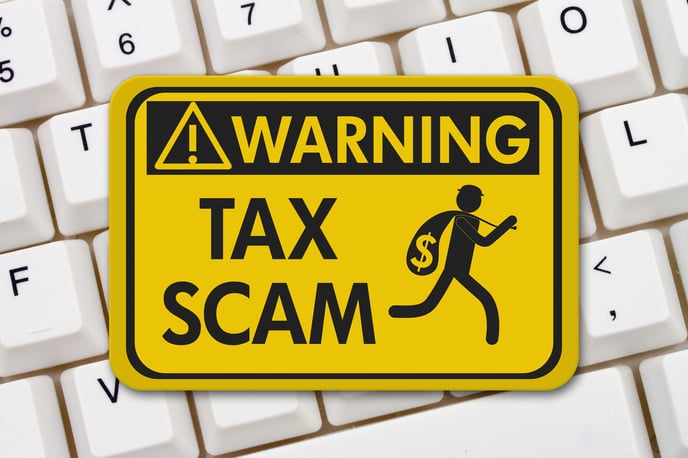To protect yourself, you must recognize the differences between the way scammers pretending to work for the IRS behave vs the way the IRS contacts you. Stay vigilant: Verify callers, avoid sharing personal info, and report suspicious activity.
First and foremost, you must remember this-- the IRS will NEVER contact you via email, text, or social media, and they rarely call.
If they do make a call it is after notice(s) have been sent via mail. If you have received a call out of the blue from someone claiming to be the IRS, do not share any personal or identifying information with them.
How do IRS scam artists behave?
- Scam artists impersonating the IRS tend to use threats when they call.
- They reach out via email, social media, text, and harassing phone calls.
- They demand payment, usually in the form of wire transfers, gift cards, or debit payments.
- Scam artists demand payment to someone other than the US Treasury.
- They may threaten legal action or to take action against someone's immigration status. The IRS does not handle phone calls or correspondence this way. If someone claiming to be an IRS agent makes threats against you, that should alert you that you are dealing with a scam artist.
So how will the IRS reach out to you?
- The IRS will send a notice or notices via US mail when a tax bill is overdue, to secure payment, or as part of an audit.
- If those notices go unanswered they may call or visit a home or business to perform an audit or as part of an investigation. Any IRS agent making a call in person or over the phone will present their credentials known as their HSPD 12 card.
- When the IRS requests payments on back taxes owed, payment options are discussed. This may be handled by the IRS directly, or by one of the four collection agencies that the IRS works with. Even if the IRS turns a file over to the collection agency, they will only ever request payment be made directly to the US Treasury.
Protecting yourself from an IRS tax scam requires a combination of vigilance and proactive steps. Here's how you can safeguard against such scams:
-
Be cautious with callers: The IRS typically contacts taxpayers through regular mail before resorting to phone calls. If someone claiming to be from the IRS calls unexpectedly, be skeptical. Don't provide personal information or payment details over the phone.
-
Verify caller identity: Ask for the caller's name, badge number, and a callback number. Use official IRS channels to verify their legitimacy. The IRS can confirm if they are indeed trying to reach you.
-
Guard personal information: Avoid sharing sensitive details like your Social Security number, bank account numbers, or credit card information over the phone or through email. The IRS won't ask for this information without prior communication.
-
Be cautious with emails: Phishing emails often mimic official IRS communications. Don't click on suspicious links or open attachments. The IRS does not initiate contact via email or social media to discuss tax matters.
-
Stay updated on scams: Be aware of the latest scam tactics employed by fraudsters. The IRS regularly publishes scam alerts and news releases on their official website.
-
Report suspicious activity: If you suspect an IRS tax scam, report it to the Treasury Inspector General for Tax Administration (TIGTA) or the IRS itself. Providing relevant details can help them investigate and prevent further fraud.
-
Protect personal devices: Ensure your computer, smartphone, and other devices have up-to-date security software and firewalls. Regularly update operating systems and applications to patch any vulnerabilities.
-
Educate yourself: Stay informed about IRS processes, tax regulations, and common scam techniques. Knowledge is your best defense against fraudsters.
-
Use secure filing methods: When filing taxes online, ensure you use a secure and reputable tax preparation software or hire a professional tax preparer with a good reputation. Protect your login credentials and sensitive tax documents.
-
Be skeptical of threats or urgency: Scammers often create a sense of urgency or threaten legal consequences. Remember, the IRS does not employ such tactics. Take time to verify before taking any action.
By following these guidelines, you can minimize the risk of falling victim to an IRS tax scam and protect your personal and financial information.

I’m Kristin, the PWCPA PC Customer Success Specialist. For more information about this topic, or any other, you can always reach me through our customer ticketing system.

